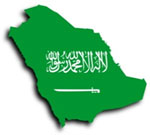 The Saudi Food and Drug Authority (SFDA) is the government agency in the Kingdom of Saudi Arabia responsible for the regulation of food, drugs (including biological products), and medical devices. The primary purpose of the SFDA is to ensure the safety, quality, efficacy, and availability of these products. Brief overviews of some of laws and regulations for cell therapy products are provided.
The Saudi Food and Drug Authority (SFDA) is the government agency in the Kingdom of Saudi Arabia responsible for the regulation of food, drugs (including biological products), and medical devices. The primary purpose of the SFDA is to ensure the safety, quality, efficacy, and availability of these products. Brief overviews of some of laws and regulations for cell therapy products are provided.
With respect to stem cells, a 2003 fatwa provides the religious framework for stem cell research in the Kingdom of Saudi Arabia. Under the 2003 fatwa, it is permissible to obtain, grow and use stem cells for therapeutic or scientific research purposes only if they are obtained from one of the following sources:
However, under the 2003 fatwa, it is not allowed to obtain and use stem cells if taken from the following sources:
Biological products are considered medicinal products that are derived from sources such as human or animal tissues, or are of microbiological origins. These products are regulated by the SFDA. Like pharmaceuticals, biological products are intended to prevent or treat diseases and medical conditions. They can be categorized into a wide range of medicinal products including vaccines, blood and blood components, allergenic extracts, immunosera, somatic cells, gene and cellular therapy, human cells and tissues, and biosimilars. They are generally manufactured using various biotechnology based-methods, are structurally complex, and often times difficult to characterize. Biological products that are intended to be marketed in Saudi Arabia must obtain a marketing authorization approval, which is analogous to the Biologics License Application in the United States. These applications undergo a multi step review process, which starts with the validation and ends with the final decision (e.g. approval or rejection). Guidelines have also been established to assist in the development of biological products for commercial marketing in Saudi Arabia.